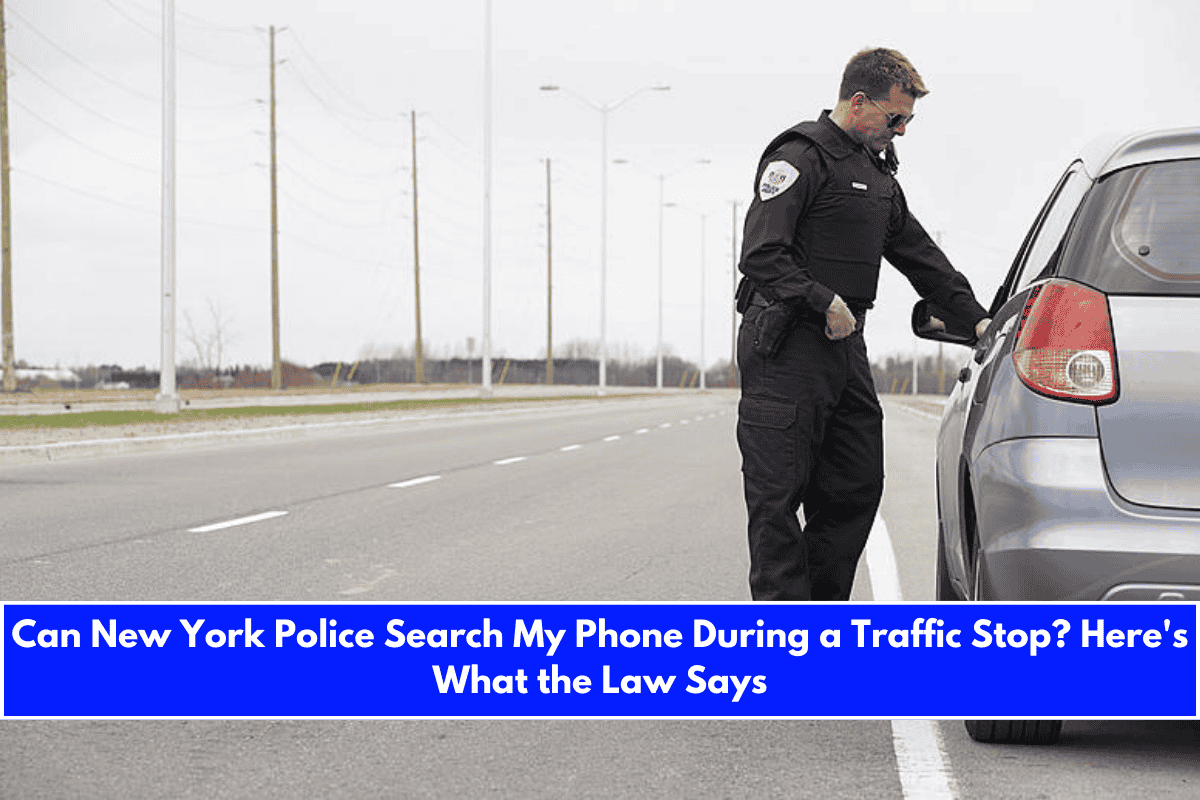In New York, police generally cannot search your phone during a traffic stop without a warrant. There are important exceptions, but your digital privacy is strongly protected under both state and federal law.
Warrant Requirement for Phone Searches
- The Fourth Amendment to the U.S. Constitution protects against unreasonable searches and seizures, which includes the contents of your cell phone.
- The U.S. Supreme Court, in Riley v. California (2014), held that police must obtain a warrant to search the contents of a cell phone, even after an arrest.
- New York courts have adopted this rule: police may not conduct a warrantless search of your cellphone—even after your arrest.
During a Traffic Stop (Without Arrest)
- During a routine traffic stop, police do not have the automatic right to search your phone.
- If an officer asks to see or search your phone, you are not required to consent. You can politely decline by saying, “I do not consent to this search”.
- Police cannot arrest or ticket you simply for refusing to consent to a search.
Exceptions: When Can Police Search Your Phone?
- Consent: If you voluntarily allow the officer to search your phone, they do not need a warrant.
- Probable Cause & Exigent Circumstances: In rare cases, if police have strong evidence that your phone contains evidence of a crime and there is a risk that evidence will be destroyed, they might search without a warrant. However, this is a high legal bar and often challenged in court.
- Search Incident to Arrest: Even if you are arrested, police still typically need a warrant to search your phone’s contents.
What Should You Do If Asked?
- Do not consent to a phone search unless you are comfortable with police accessing all your data.
- State clearly: “I do not consent to this search.”
- Do not unlock your phone for police unless presented with a warrant. Police cannot force you to provide your passcode, and compelling biometric unlocking (fingerprint/face) is a legally unsettled area but generally requires a warrant.
Key Takeaways
- Police in New York cannot search your phone during a traffic stop without a warrant or your consent.
- If you are arrested, a warrant is still required to access your phone’s contents.
- Always exercise your right to refuse consent to a search, and ask to see a warrant if police claim to have one.
Your digital privacy is well-protected, but it’s important to calmly assert your rights if asked to hand over your phone.
Sources:
- https://economictimes.com/news/international/us/welcome-to-america-now-hand-over-your-phone-cbp-can-legally-search-your-phone-without-a-warrant-yes-even-your-messages-and-social-media/articleshow/120435299.cms
- https://www.nyclu.org/uploads/2017/02/kyroverhaul-nyclu-stoppedbypolice-onepager-v01.pdf
- https://www.newyorkappellatelawyer.com/blog/your-cell-phone-and-the-fourth-amendment-police-may-not-conduct-a-warrantless-search-of-your-cellphone-even-after-your-arrest/
- https://www.nyclu.org/commentary/column-technology-and-constitution-supreme-court-decide-if-police-can-freely-search
- https://www.govtech.com/public-safety/can-police-search-your-phone-during-a-traffic-stop











Leave a Reply